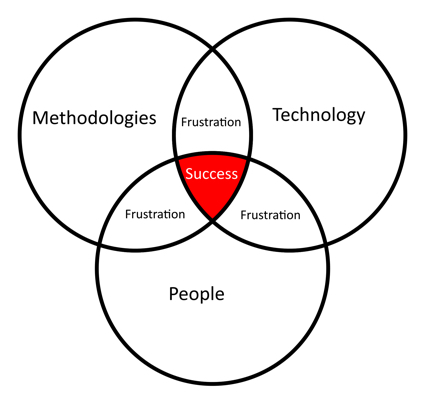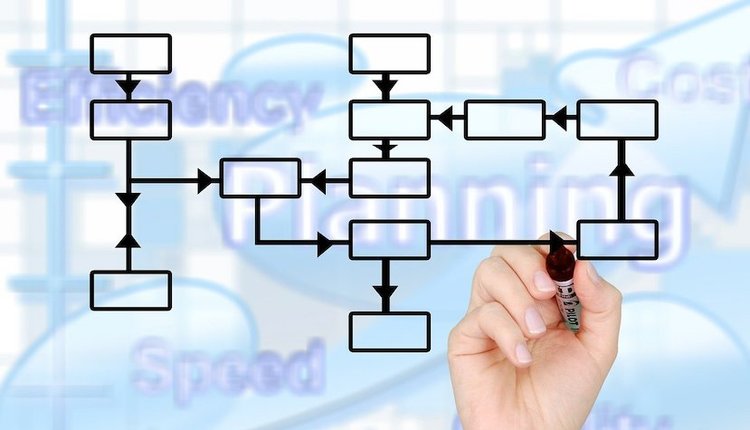
Image by: Monkey Business Images Ltd, ©2016 Getty Images
I have a great deal of experience with organizations that place their bets on technology at the cost of the organization, or others place their bets on technology and the organization at the cost of the human factor. In fact, neither has an absolutely correct view of how things really work, because as the saying goes, “We are all one.” It does not make sense to decide on technology without considering the organizational implications. In the same way, it does not makes sense to discuss organizational changes without a say from the people that do the work, day in and day out.

Figure 1: Components of Success
Eventually, the "smart" people that Steve was talking about may already be at your company and may have a huge say on how to improve productivity. Everybody likes to see that their work is relevant to the overall productivity picture, and this feeling is frequently much more important in keeping your employees than just their salary. So, before changing your organizational procedures or methods, let alone the technology that will support those new methods, it is necessary to talk with the people who actually handle those daily tasks and research what makes sense to change, why and the expected benefit. Even if the organization is very big and it is physically impossible to talk to everyone, an educated choice of contacts may take you a long way.
There are all sorts of tasks performed by employees—from the routine to the creative ones. All tasks have to be executed, and all tasks need the proper context to be executed effectively. Most of the time, people executing those tasks do not have the proper context in order to work and the control of that context is far away from their competences. This is the reason why it's important to listen to what they may have to say. Even an employee with a task considered to be low impact to the organization may have an idea that will have a large impact in the long run. Years back, a cleaning employee exposed the fact that important documents were just being thrown in the common bin. The task was modest, but the impact was absolutely relevant.
People will tell us what information they need to do their jobs, just as they will tell us what information gathering is making them lose precious time concerning their main core business. Many times, management just imposes the usual methods of dealing with information, regardless of the logic behind it, and this is a waste.
In the document management world, I have seen all sorts of forms that everybody complains about due to the lack of information that later has to be filled out by hand. Why hasn’t the document been changed yet? I have seen processes where in order for Department A to provide approval, it was necessary for Department B to have already approved, but the interesting bit was that Department B would only approve if Department A had previously submitted approval. When I understood (for a lack of a better word) what was going on, I was surprised to learn that this situation was known to most of the staff but apparently not by management. The reason? Nobody cared. The staff had no motivation to pass on the information, and management assumed that everything was properly designed from an organizational perspective.
People matter—even for the jobs that can be fulfilled by robots in the near future, such as taking packages from warehouses. For the majority of companies, it is important that basic information comes from the staff. Then, we may optimize procedure, policies and methods; then, and only then, we can decide on the technology that will implement that optimization. Gallup quantified, in 2012, the link between employee feelings and corporate outcomes, reporting that lost productivity due to employee disengagement costs more than $300 billion in the US annually. Let us hear then.
Joao Penha-Lopes specializes in document management since 1998. He holds two postgraduate degrees in document management from the University Lusofona (Lisbon) and a PhD from Universidad de Alcala de Henares (Madrid) in 2013, with a thesis studying the economic benefits of electronic document management (EDM). He is an ARMA collaborator for publications and professionally acts as an advisor on critical information flows mostly for private corporations. Follow him on Twitter @JoaoPL1000.
















